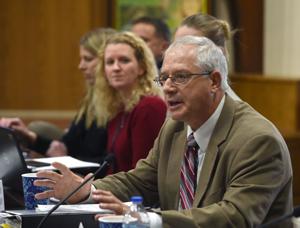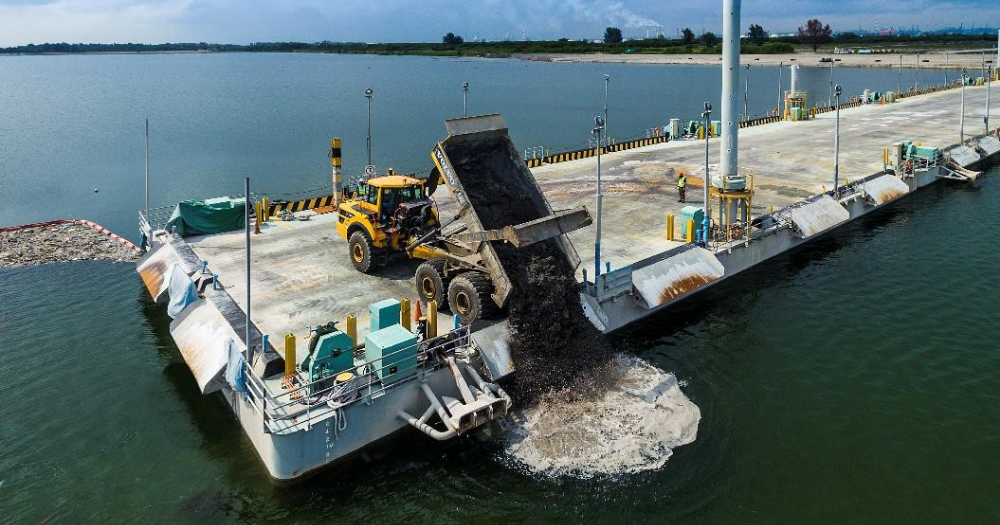
I n international climate governance, Article 6 of the Paris Agreement represents a beacon of hope and innovation. It provides a mechanism through which nations can cooperatively tackle the pressing challenge of climate change. The operationalisation of this provision at the recent conference of parties (COP-29) marked a watershed moment, promising the establishment of robust carbon markets capable of delivering cost-effective emission reductions.
For a country like Pakistan, grappling with both climate vulnerabilities and economic constraints, the implications of Article 6 hold profound significance. Yet, its promise is tempered by inherent complexity, unresolved challenges and the need for meticulously equitable implementation on the basis of climate justice. Article 6 provides a framework for leveraging market-based solutions to combat climate change.

It has two key pillars—internationally transferred mitigation outcomes (ITMOs) under Article 6.2 and the Paris Agreement Crediting Mechanism (PACM) under Article 6.4.
The ITMOs enable countries to cooperate by transferring emissions reductions across borders to meet their nationally determined contributions (NDCs). This approach fosters flexibility and reduces the economic burden of mitigation. However, the effectiveness of ITMOs hinges on rigorous accounting to prevent double counting.
The operationalisation of ITMOs, while laudable, faces critical hurdles, including discrepancies in accounting methodologies for single- and multi-year NDCs, which complicate the application of corresponding adjustments. These technical challenges pose risks to the credibility of emissions reductions, potentially undermining the very objectives that ITMOs aim to achieve. Under Article 6.
4, the PACM establishes a regulated marketplace for carbon credits, offering a standardised platform to generate and trade emissions reductions. This mechanism prioritises environmental and social safeguards, ensuring that mitigation activities deliver tangible, measurable and long-term climate benefits. The decisions taken at COP-29 underscore the importance of robust verification and compliance mechanisms to maintain the integrity of these credits.
Inconsistencies in credit verification and reliance on voluntary reporting frameworks create vulnerabilities, opening the door to market manipulation and greenwashing. The supervisory body overseeing the PACM has made strides by adopting standards for removals and methodologies, but gaps in governance and enforcement persist, limiting the transformative potential of this mechanism. One of the most compelling features of Article 6 is its provision for adaptation financing through a levy on proceeds from carbon market activities.
Article 6.6 aligns with broad goals of climate justice, mandating that a portion of revenues generated under the PACM be directed to the Adaptation Fund. This ensures that vulnerable nations that bear the brunt of climate change, benefit from international mitigation efforts.
For Pakistan, this provision presents a critical opportunity to bolster its adaptation capacity, channeling funds into climate-resilient infrastructure, disaster management systems and community-based initiatives. However, effective realisation of this potential requires a cohesive integration of Article 6 mechanisms into the national climate and development agenda. Despite its promise, the operationalisation of Article 6 is fraught with challenges that threaten its environmental integrity and effectiveness.
Governance gaps, particularly the weak linkage between Article 6 mechanisms and the Enhanced Transparency Framework under Article 13, hinder the comprehensive tracking of mitigation outcomes. An absence of stringent compliance and oversight mechanisms can exacerbate these vulnerabilities, undermining confidence in the reliability of carbon trading systems. At COP-29, some experts emphasised the urgency of addressing these issues through enhanced technical guidance, independent audits and the establishment of centralised registries for ITMOs.
Such measures are essential to ensure transparency, accountability and the equitable distribution of benefits. The stakes are particularly high for Pakistan. As a developing country with limited financial resources and significant climate risks, the successful implementation of Article 6 mechanisms could serve as a linchpin for achieving its climate goals.
To harness this potential, Pakistan must adopt a proactive strategic approach. Establishing a dedicated hub in its National Climate Change Authority to oversee ITMOs and PACM activities would provide a centralised platform for tracking, verifying and reporting mitigation outcomes. This institution could also develop standardised methodologies for accounting discrepancies, ensuring alignment with international best practices and fostering trust among stakeholders.
Pakistan’s engagement with Article 6 should go beyond technical compliance to encompass broad socio-economic objectives. By incentivising renewable energy projects and reforestation initiatives, Pakistan can generate carbon credits that not only reduce emissions but also create jobs, stimulate investment and enhance energy security. Revenues from these credits could be reinvested in adaptation measures, further strengthening the country’s resilience to climate impacts.
A Sustainable Development Criteria Framework for carbon market activities can ensure that these projects uphold environmental and social safeguards, avoiding potential harm to vulnerable populations and contributing to broader sustainability goals. To mitigate risks of market manipulation and greenwashing, Pakistan must prioritise the establishment of an ICMOA to conduct regular audits and compliance reviews, addressing verification challenges and ensuring adherence to the principles of Article 6.4.
The credibility of Pakistan’s carbon credits in the international market will depend on rigorous oversight. The integration of Article 6 activities into the Global Stock Take under Article 14 offers another avenue for enhancing transparency and accountability. By systematically assessing the aggregated impact of carbon markets, the GST can identify gaps, recommend improvements and ensure alignment with the overarching goals of the Paris Agreement.
For Pakistan, active participation in international forums advocating for these alignments is crucial, as is the establishment of domestic institutional mechanisms to coordinate efforts across sectors and provinces. Equity must be the cornerstone of Article 6 mechanisms, ensuring that global climate cooperation does not perpetuate existing injustices but rather rectifies them. The principles enshrined in the Paris Agreement under Article 6 must be operationalised with a steadfast commitment to climate justice, recognising the historical inequities that have placed the heaviest burdens of climate change on those least responsible for it.
Developing nations, such as Pakistan, which contribute very little to global greenhouse gas emissions yet face devastating climate impacts, must not be left to bear the cost of mitigation and adaptation alone. The mechanisms under Article 6 should be utilised as tools for fairness and shared responsibility, ensuring that the economic benefits of carbon markets flow equitably to those who need them most. Article 6 should not be misused as a licence for polluters to continue their harmful practices under the guise of purchasing mitigation outcomes.
The polluter-pays principle must remain paramount, ensuring that those responsible for the bulk of emissions take responsibility for their actions. Wealthier nations and high-emission industries should not view carbon markets as a convenient escape from their obligations but should instead use them as a supplementary measure, alongside significant domestic emissions reductions. This balance is critical to maintaining the credibility and integrity of the system, preventing carbon markets from becoming a vehicle for greenwashing rather than genuine climate action.
The “share of proceeds” provision under Article 6.6 is a vital step toward embedding the polluter-pays principle into the framework of international carbon markets. By mandating that a portion of revenues from carbon trading be directed to adaptation efforts in vulnerable nations, Article 6 ensures that the most-at-risk communities are not left behind.
For Pakistan, these funds can support essential adaptation measures such as flood defences, drought-resistant agriculture and disaster-resilient infrastructure, aligning mitigation efforts with the broader goals of equity and justice. It is imperative that these proceeds are not seen as charity but as a rightful redistribution of resources to address the global inequities that the climate crisis has exposed. Normatively, the implementation of Article 6 must adhere to strict governance standards, ensuring that its mechanisms do not exacerbate inequalities or undermine environmental integrity.
Developing nations must have a seat at the table in the design, oversight and operationalisation of carbon markets. The establishment of robust social and environmental safeguards is non-negotiable, as mitigation projects must contribute to sustainable development without harming vulnerable communities. In Pakistan’s case, a Sustainable Development Criteria Framework should be adopted to guarantee that carbon market activities align with national priorities, foster socio-economic development, and respect the rights of local populations.
Article 6 must remain a mechanism for transformative climate action, not a means to delay or dilute the responsibility of high-emitting entities. It should catalyse international solidarity, empowering countries like Pakistan to achieve their climate goals without sacrificing economic growth or social equity. By embedding the polluter-pays principle and prioritising the needs of vulnerable nations, Article 6 can exemplify a just and equitable approach to global climate governance.
For Pakistan, embracing this vision is both a moral imperative and a strategic opportunity to ensure that climate resilience and justice go hand in hand. Article 6 of the Paris Agreement embodies a paradigm shift in global climate governance, offering innovative pathways to achieve emissions reductions while fostering international cooperation. For Pakistan, the successful operationalisation of these mechanisms represents not just an environmental imperative but also an economic opportunity to achieve climate prosperity.
Through strategic planning, rigorous oversight and integration with national priorities, Pakistan can transform the economics of Article 6 into a cornerstone of sustainable development. The writer, research fellow at Sustainable Development Policy Institute, has a doctorate in energy economics. He can be reached at khalidwaleed@sdpi.
org . He tweets @Khalidwaleed_.















